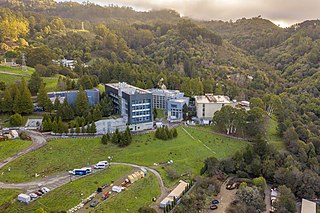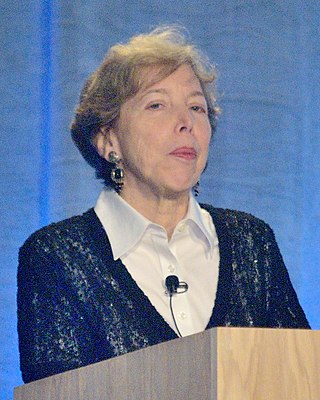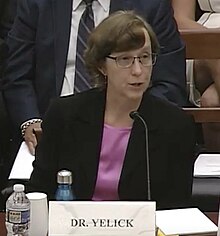
Lawrence Berkeley National Laboratory (LBNL) is a federally funded research and development center in the hills of Berkeley, California, United States. Established in 1931 by the University of California (UC), the laboratory is sponsored by the United States Department of Energy and administered by the UC system. Ernest Lawrence, who won the Nobel prize for inventing the cyclotron, founded the Lab and served as its Director until his death in 1958. Located in the Berkeley Hills, the lab overlooks the campus of the University of California, Berkeley.

Jack Joseph Dongarra is an American computer scientist and mathematician. He is a University Distinguished Professor of Computer Science in the Electrical Engineering and Computer Science Department at the University of Tennessee. He holds the position of a Distinguished Research Staff member in the Computer Science and Mathematics Division at Oak Ridge National Laboratory, Turing Fellowship in the School of Mathematics at the University of Manchester, and is an adjunct professor and teacher in the Computer Science Department at Rice University. He served as a faculty fellow at the Texas A&M University Institute for Advanced Study (2014–2018). Dongarra is the founding director of the Innovative Computing Laboratory at the University of Tennessee. He was the recipient of the Turing Award in 2021.

The United States Department of Energy National Laboratories and Technology Centers is a system of laboratories overseen by the United States Department of Energy (DOE) for scientific and technological research. The primary mission of the DOE national laboratories is to conduct research and development (R&D) addressing national priorities: energy and climate, the environment, national security, and health. Sixteen of the seventeen DOE national laboratories are federally funded research and development centers administered, managed, operated and staffed by private-sector organizations under management and operating (M&O) contracts with the DOE. The National Laboratory system was established in the wake of World War II, during which the United States had quickly set-up and pursued advanced scientific research in the sprawling Manhattan Project.

David A. Bader is a Distinguished Professor and Director of the Institute for Data Science at the New Jersey Institute of Technology. Previously, he served as the Chair of the Georgia Institute of Technology School of Computational Science & Engineering, where he was also a founding professor, and the executive director of High-Performance Computing at the Georgia Tech College of Computing. In 2007, he was named the first director of the Sony Toshiba IBM Center of Competence for the Cell Processor at Georgia Tech.

Susan Lois Graham is an American computer scientist. Graham is the Pehong Chen Distinguished Professor Emerita in the Computer Science Division of the Department of Electrical Engineering and Computer Sciences at the University of California, Berkeley.

The National Energy Research Scientific Computing Center (NERSC), is a high-performance computing (supercomputer) National User Facility operated by Lawrence Berkeley National Laboratory for the United States Department of Energy Office of Science. As the mission computing center for the Office of Science, NERSC houses high performance computing and data systems used by 9,000 scientists at national laboratories and universities around the country. Research at NERSC is focused on fundamental and applied research in energy efficiency, storage, and generation; Earth systems science, and understanding of fundamental forces of nature and the universe. The largest research areas are in High Energy Physics, Materials Science, Chemical Sciences, Climate and Environmental Sciences, Nuclear Physics, and Fusion Energy research. NERSC's newest and largest supercomputer is Perlmutter, which debuted in 2021 ranked 5th on the TOP500 list of world's fastest supercomputers.
Simula Research Laboratory is a Norwegian non-profit research organisation located in Oslo, Norway.
Trilinos is a collection of open-source software libraries, called packages, intended to be used as building blocks for the development of scientific applications. The word "Trilinos" is Greek and conveys the idea of "a string of pearls", suggesting a number of software packages linked together by a common infrastructure. Trilinos was developed at Sandia National Laboratories from a core group of existing algorithms and utilizes the functionality of software interfaces such as BLAS, LAPACK, and MPI. In 2004, Trilinos received an R&D100 Award.
In computer science, partitioned global address space (PGAS) is a parallel programming model paradigm. PGAS is typified by communication operations involving a global memory address space abstraction that is logically partitioned, where a portion is local to each process, thread, or processing element. The novelty of PGAS is that the portions of the shared memory space may have an affinity for a particular process, thereby exploiting locality of reference in order to improve performance. A PGAS memory model is featured in various parallel programming languages and libraries, including: Coarray Fortran, Unified Parallel C, Split-C, Fortress, Chapel, X10, UPC++, Coarray C++, Global Arrays, DASH and SHMEM. The PGAS paradigm is now an integrated part of the Fortran language, as of Fortran 2008 which standardized coarrays.
Exascale computing refers to computing systems capable of calculating at least "1018 IEEE 754 Double Precision (64-bit) operations (multiplications and/or additions) per second (exaFLOPS)"; it is a measure of supercomputer performance.

James Weldon Demmel Jr. is an American mathematician and computer scientist, the Dr. Richard Carl Dehmel Distinguished Professor of Mathematics and Computer Science at the University of California, Berkeley.
The Multiprogram Research Facility is a facility at the Oak Ridge National Laboratory in Oak Ridge, Tennessee. It is used by the U.S. National Security Agency (NSA) to design and build supercomputers for cryptanalysis and other classified projects. It houses the classified component program of the High Productivity Computing Systems (HPCS) project sponsored by the Defense Advanced Research Projects Agency (DARPA).

Valerie Elaine Taylor is an American computer scientist who is the director of the Mathematics and Computer Science Division of Argonne National Laboratory in Illinois. Her research includes topics such as performance analysis, power analysis, and resiliency. She is known for her work on "Prophesy," described as "a database used to collect and analyze data to predict the performance on different applications on parallel systems."

The Association for Computing Machinery's Council on Women in Computing (ACM-W) supports, celebrates, and advocates internationally for the full engagement of women in all aspects of the computing field, providing a wide range of programs and services to ACM members and working in the larger community to advance the contributions of technical women. ACM-W is an active organization with over 36,000 members.

Richard Vuduc is a tenured professor of computer science at the Georgia Institute of Technology. His research lab, The HPC Garage, studies high-performance computing, scientific computing, parallel algorithms, modeling, and engineering. He is a member of the Association for Computing Machinery (ACM). As of 2022, Vuduc serves as Vice President of the SIAM Activity Group on Supercomputing. He has co-authored over 200 articles in peer-reviewed journals and conferences.
Animashree (Anima) Anandkumar is the Bren Professor of Computing at California Institute of Technology. Previously, she was a senior director of Machine Learning research at NVIDIA and a principal scientist at Amazon Web Services. Her research considers tensor-algebraic methods, deep learning and non-convex problems.
Jacqueline H. Chen is an American mechanical engineer. She works in the Combustion Research Facility of Sandia National Laboratories, where she is a Senior Scientist. Her research applies massively parallel computing to the simulation of turbulent combustion.

Ilkay Altintas is a Turkish-American data and computer scientist, and researcher in the domain of supercomputing and high-performance computing applications. Since 2015, Altintas has served as chief data science officer of the San Diego Supercomputer Center (SDSC), at the University of California, San Diego (UCSD), where she has also served as founder and director of the Workflows for Data Science Center of Excellence (WorDS) since 2014, as well as founder and director of the WIFIRE lab. Altintas is also the co-initiator of the Kepler scientific workflow system, an open-source platform that endows research scientists with the ability to readily collaborate, share, and design scientific workflows.
Performance portability refers to the ability of computer programs and applications to operate effectively across different platforms. Developers of performance portable applications seek to support multiple platforms without impeding performance, and ideally while minimizing platform-specific code.

Horst D. Simon is a computer scientist known for his contributions to high-performance computing (HPC) and computational science. He is director of ADIA Lab in Abu Dhabi, UAE and editor of TOP500.












